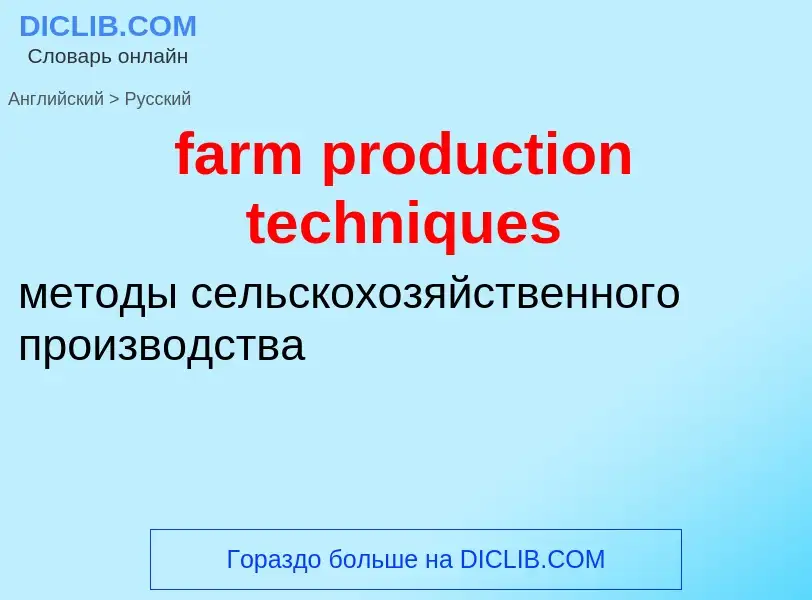Translation and analysis of words by ChatGPT artificial intelligence
On this page you can get a detailed analysis of a word or phrase, produced by the best artificial intelligence technology to date:
- how the word is used
- frequency of use
- it is used more often in oral or written speech
- word translation options
- usage examples (several phrases with translation)
- etymology
farm production techniques - translation to russian
['stʌdfɑ:m]
общая лексика
конный завод
племенная ферма
Wikipedia
A subsistence economy is an economy directed to basic subsistence (the provision of food, clothing, shelter) rather than to the market. Henceforth, "subsistence" is understood as supporting oneself at a minimum level. Often, the subsistence economy is moneyless and relies on natural resources to provide for basic needs through hunting, gathering, and agriculture. In a subsistence economy, economic surplus is minimal and only used to trade for basic goods, and there is no industrialization. In hunting and gathering societies, resources are often if not typically underused.
In human history, before the first cities, all humans lived in a subsistence economy. As urbanization, civilization, and division of labor spread, various societies moved to other economic systems at various times. Some remain relatively unchanged, ranging from uncontacted peoples, to marginalized areas of developing countries, to some cultures that choose to retain a traditional economy.
Capital can be generally defined as assets invested with the expectation that their value will increase, usually because there is the expectation of profit, rent, interest, royalties, capital gain or some other kind of return. However, this type of economy cannot usually become wealthy by virtue of the system, and instead requires further investments to stimulate economic growth. In other words, a subsistence economy only possesses enough goods to be used by a particular nation to maintain its existence and provides little to no surplus for other investments.
It is common for a surplus capital to be invested in social capital such as feasting.

![Žabnik]] at [[Sveti Martin na Muri]], [[Croatia]], is owned by the ''Međimurje nature'' public institution Žabnik]] at [[Sveti Martin na Muri]], [[Croatia]], is owned by the ''Međimurje nature'' public institution](https://commons.wikimedia.org/wiki/Special:FilePath/Ergela međimurskog konja, Žabnik (Croatia) - kobile.jpg?width=200)
![A large stud farm in [[Gdynia]], [[Poland]] A large stud farm in [[Gdynia]], [[Poland]]](https://commons.wikimedia.org/wiki/Special:FilePath/Pl-gdynia-kolibki-stadnina.jpg?width=200)
